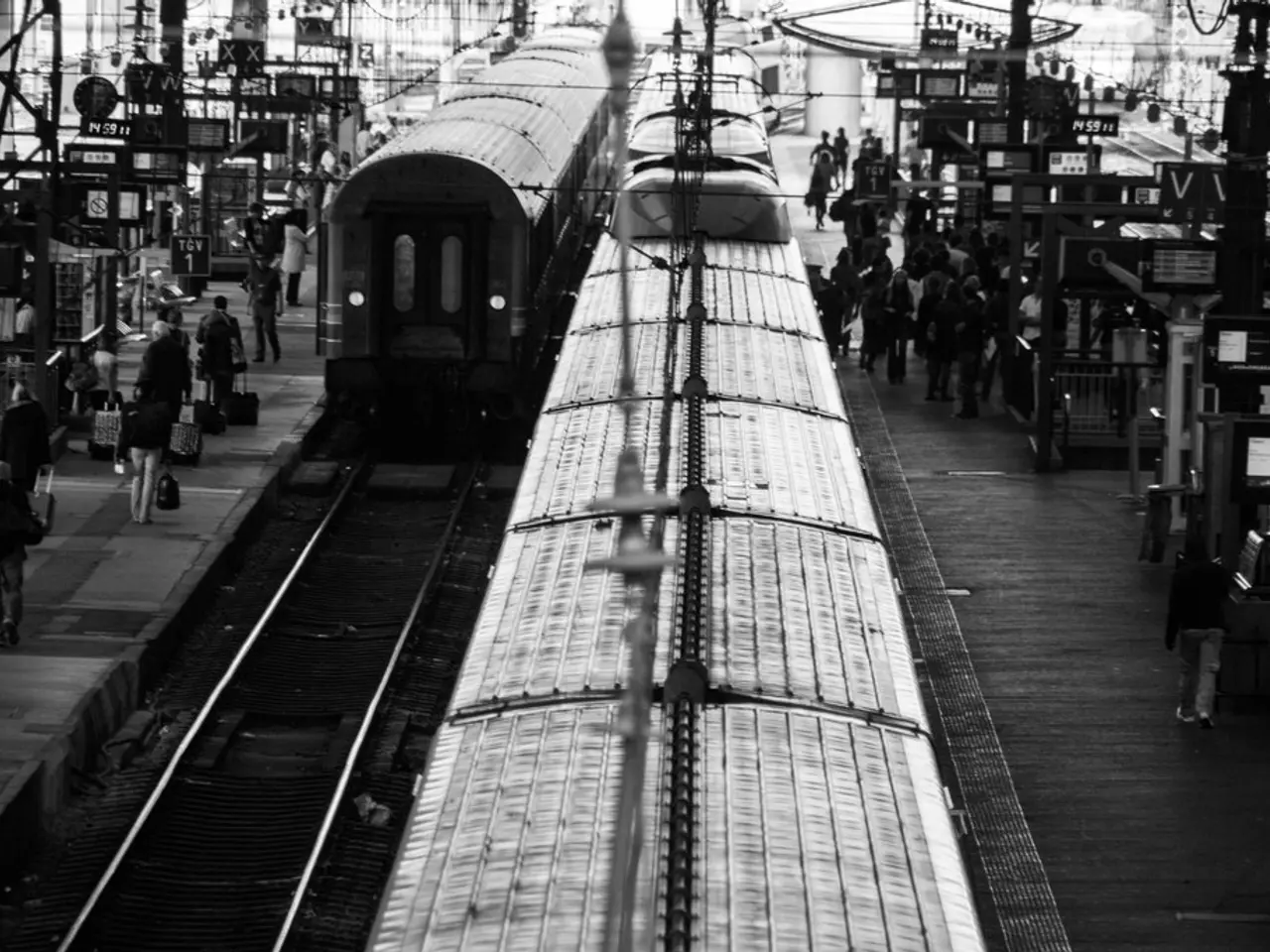Diageo, the renowned alcoholic beverages company, recovers from its setbacks, sparking investment consideration.
Diageo, the global alcoholic beverages giant, is navigating a complex growth landscape, impacted by a combination of operational challenges, shifting consumer trends, and trade dynamics.
In the first half of fiscal 2024, Diageo experienced a 1% decline in group sales due to a 20% fall in sales in Latin America and the Caribbean. This downturn resulted in a 9% decline in the company's earnings per share for the year, and profits are forecasted to drop further by 10% in the current financial year.
However, the global premium alcohol market is expected to grow strongly, with a compound annual growth rate (CAGR) of about 9.76% from 2025, reaching approximately $950 billion by 2030. Diageo holds a strong position in this segment, with brands like Johnnie Walker and Don Julio.
Younger consumers, particularly Generation Z, are showing less interest in alcohol, partly due to social media influences and health trends. The popularity of weight-loss drugs like Ozempic, which can reduce alcohol desire, also poses a demand headwind.
Diageo's iconic Guinness brand, which accounts for around two-thirds of the group’s beer sales, is another key factor. Despite making up 16% of total sales, only 12,000 on-trade outlets in Europe stock Guinness, accounting for just over 5% of the market.
Diageo's premium spirits business is building a strong base with a new generation of consumers. The company's St James's Gate brewery in Dublin is currently running at 90% capacity, and a new brewery, set to come online in 2027, will help free up space and could boost production by 30%.
Diageo's exposure to tariffs, especially in the US, its largest market, has been a significant challenge. Tariffs have been estimated to cost the company around $150 million annually. However, recent signs of easing trade tensions and potential new trade deals by the US government could reduce tariff pressures, improving Diageo's cost base and profitability.
Despite the challenges, Diageo's valuation metrics suggest the stock is undervalued relative to its historical averages. The forward price-to-earnings ratio stands at about 14.5x, notably below its 10-year average of 21.1x. The dividend yield is also relatively attractive at 3.7%, compared to a decade average of 2.7%.
In conclusion, while Diageo faces short-term headwinds, the long-term outlook benefits from strong growth in the premium and luxury alcohol markets, potential easing of trade tariffs, and attractive valuation levels that may support a recovery. The success of this recovery depends on how well Diageo adapts to cultural shifts and manages costs in a challenging macroeconomic environment.
- In light of the expected growth in the global premium alcohol market and Diageo's strong position, some investors might find investing in Diageo's shares an attractive opportunity, given the relatively low price-to-earnings ratio and high dividend yield.
- With Diageo's premium spirits business growing, the company's new brewery, scheduled to open in 2027, could potentially boost production by 30%, which might offset operational challenges and help improve business.
- As Diageo faces reduced tariff pressures due to easing trade tensions and potential new trade deals, this could positively impact the company's cost base and profitability, making its financial situation more favorable.







